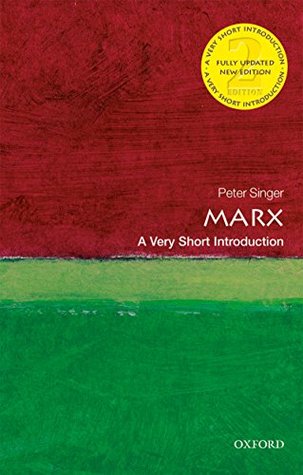More on this book
Community
Kindle Notes & Highlights
Under Bauer’s influence Marx seized on orthodox religion as the chief illusion standing in the way of human self-understanding. The chief weapon against this illusion was philosophy.
The solution is to realize that theology is a kind of misdescribed anthropology. What we believe of God is really true of ourselves. Thus humanity can regain its essence, which in religion it has lost.
Accepting the common stereotype of Jews as obsessed with money and bargaining, Marx describes the Jew as merely a special manifestation of what he calls ‘civil society’s Judaism’—that is, the dominance in society of bargaining and financial interests generally. Marx therefore suggests that the way to abolish the ‘problem’ of Judaism is to reorganize society so as to abolish money and the bargaining that follows from it.
Here is the germ of a new solution to the problem of human alienation. Criticism and philosophical theory alone will not end it. A more practical force is needed, and that force is provided by the artificially impoverished working class.
Marx had now developed two important new ideas. The first is that the chief form of human alienation is not philosophical nor religious, but economic, grounded in the way we satisfy our material wants; and the second is that the material force needed to liberate humanity from its domination by the capitalist system lies in the working class.
These three ways in which workers are alienated—from the products of labour, from their activity, and from their species-being—lead to a fourth. For workers, productive activity becomes ‘activity under the domination, coercion and yoke of another man’—the capitalist employer.
Marx rejects the idea that anything would be achieved by an enforced wage rise. Labour for wages is not free productive activity. It is merely a means to an end. Marx describes higher wages as nothing but ‘a better payment of slaves’ that does nothing to restore significance or dignity to workers (EPM 93). Instead, Marx advocates the abolition of wages, alienated labour, and private property in one blow: in a word, communism.
The abolition of private property and the regulation of production under communism would abolish this ‘alien relation between men and what they themselves produce’ and enable men to ‘get exchange, production, the mode of their mutual relation, under their own control again’ (GI 186).
According to Engels, Marx grew so irritated at misinterpretations of his doctrine that towards the end of his life, he declared: ‘All I know is that I am not a Marxist.’
A house may be large or small; as long as the surrounding houses are equally small it satisfies all social demands for a dwelling. But let a palace arise beside the little house, and it shrinks from a little house to a hut … however high it may shoot up in the course of civilization, if the neighbouring palace grows to an equal or even greater extent, the occupant of the relatively small house will feel more and more uncomfortable, dissatisfied and cramped within its four walls.
This is how capitalism enslaves its workers. Through machinery and the division of labour, capitalism greatly increases the productivity of human labour; but this increased productivity does not benefit the producers.
This was especially tragic in Germany, where at the last free election before Hitler was appointed Chancellor, the Social Democrats and Communists together won more seats than the Nazis and could have kept Hitler out of power if they had been willing to work together.
Greed, egoism, and envy are not ingrained forever in the character of human beings. They would disappear in a society in which private property and private means of production were replaced with communal property and socially organized means of production. We would lose our preoccupation with our private interests.
Scientists test their theories by drawing predictions from them, and then checking whether the predictions are accurate. A scientific theory that yielded predictions as far astray as Marx’s predictions would have to be abandoned, or at a minimum, heavily revised.
The tragedy of Marxism is that our experience of the rule of workers in several different countries bears out Bakunin’s objections, rather than Marx’s replies. In figures like Joseph Stalin, Mao Zedong, Kim Il Sung, and Pol Pot, Bakunin’s ‘nightmares about authority’ came horribly true.


